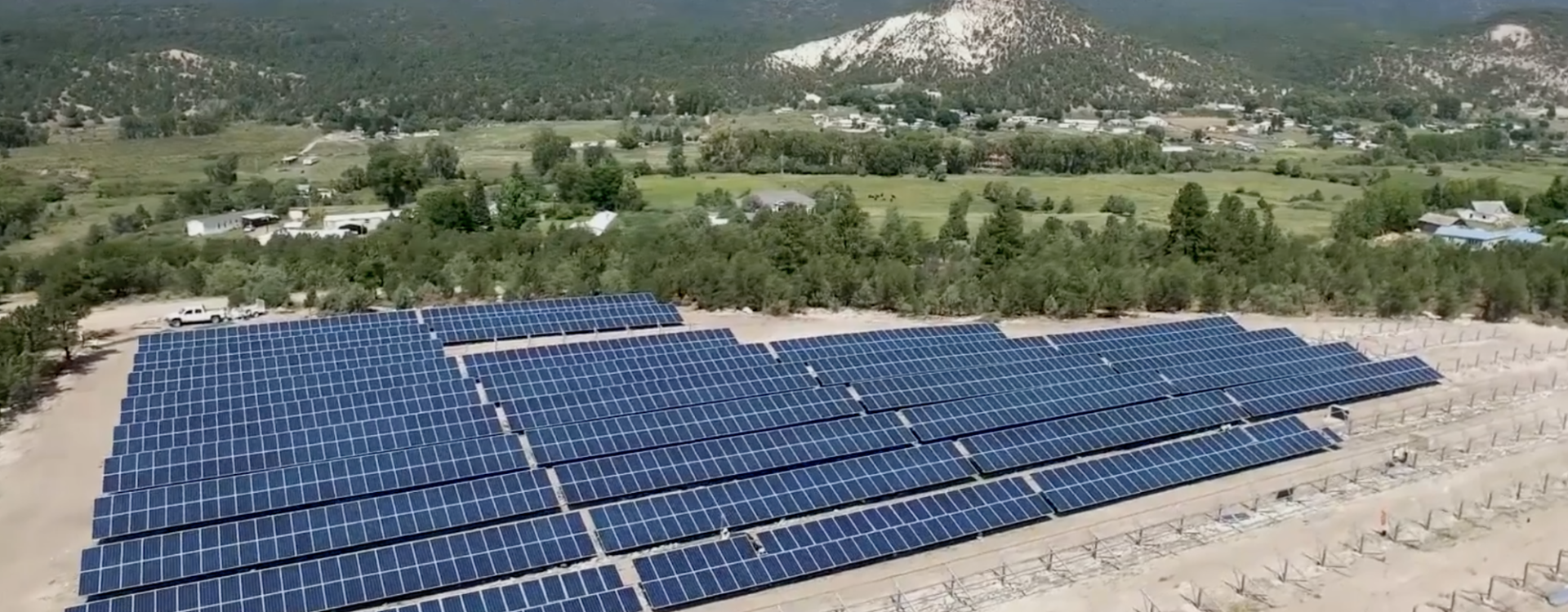The Energy Policy Act of 2020, signed into law by the President in December 2020, offers many diverse opportunities, programs, and forms of support for grid modernization and renewable energy, to be implemented by the Department of Energy, including: energy efficiency, smart buildings, CHP, advanced nuclear, hydro/wind/solar generation, storage, smart grid architectures, microgrids, and technology commercialization. These programs will be supported by approximately $35 billion in funding.
The federal spending bill of which the Energy Act formed a part also extended the solar energy Investment Tax Credit.
Many of these have explicit Indian or Tribal references; others have bearing on all solar, renewable, and independent energy stakeholders. The full bill can be accessed here, and a short summary of each section here. Relevant highlights include:
Solar Investment Tax Credit: the bill extends the investment tax credit for solar by two years at its current 26% rate before phasing down to 22%, delaying the previously mandated phase-down schedule.
Indian Energy: Section 8013 amends section 2601(2) of the Energy Policy Act of 1992 to include any land occupied by a majority of residents who are members of Alaskan Native Tribes in the definition of Indian Land. The section also allows the Secretary of Energy to reduce any required cost
share for energy projects funded through the Office of Indian Energy.
Report on Electricity Access and Reliability: Section 8014 requires the Secretary of Energy to assess electricity access and reliability by Tribal communities and to produce a report based on the findings of the assessment. The Secretary of Energy must consult with Tribal governments in the design and conduct of the study and consult with the North American Electric Reliability Council (NERC) and FERC in conducting the study.
Micro-grid and Integrated Micro-grid Systems Program: Section 8011 directs the Secretary of Energy to establish a program to promote development of integrated micro-grid systems for isolated communities and micro-grid systems to increase critical infrastructure resiliency. It also authorizes micro-grid demonstration grants for isolated communities, rural electric cooperatives, and municipalities.
Energy Storage Technology and Microgrid Assistance Program: Section 3202 establishes an energy storage and microgrid grant and technical assistance program at DOE for rural electric cooperatives and public utilities to assist with designing and demonstrating energy storage and microgrid projects that use energy from renewable energy sources.
Coordination of Efforts: Section 8006 directs the Secretary of Energy to coordinate with relevant entities on the activities authorized in the amendments made in this title, including electric utilities, transmission organizations, State, Tribal, and local governments, and the national labs, among other entities.
Categorised in: Featured


